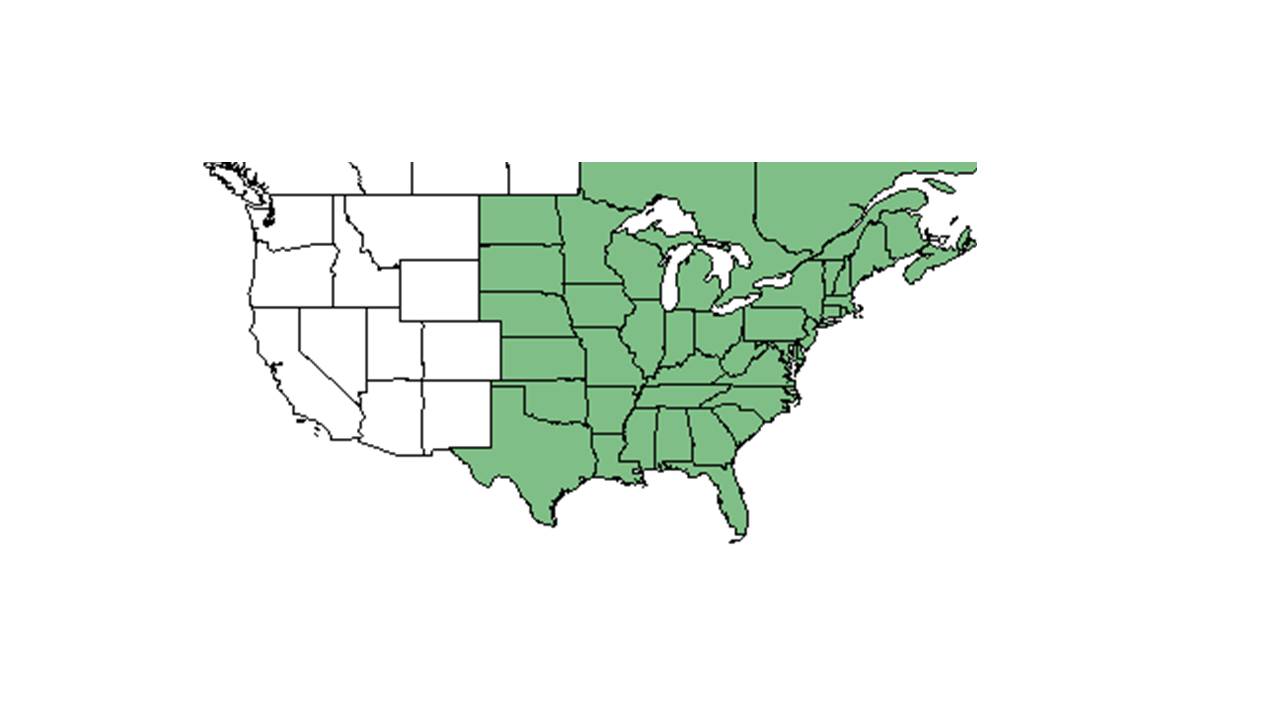Ageratina altissima
| Ageratina altissima | |
|---|---|
Error creating thumbnail: Unable to save thumbnail to destination
| |
| Scientific classification | |
| Kingdom: | Plantae |
| Division: | Magnoliophyta - Flowering plants |
| Class: | Magnoliopsida - Dicotyledons |
| Order: | Asterales |
| Family: | Asteraceae ⁄ Compositae |
| Genus: | Ageratina |
| Species: | A. altissima |
| Binomial name | |
| Ageratina altissima (Chapm.) Pennell | |

| |
| Natural range of Ageratina altissima from USDA NRCS Plants Database. | |
Contents
Description
Distribution
Ecology
Ageratina altissima competes by allelopathy. Corbett and Morrison found out that aqueous extracts from roots and especially shoots decreased the rate of germination, percentage of germination, and size of germinated Lettuce and Radish seeds in Petri dishes as well as in pots of forest soil. [1]
Habitat
Phenology
Seed dispersal
It disseminates its mature seeds (achenes) in fall and winter. Each plant can produce thousands of seeds at a time. [2]
Seed bank and germination
Ageratina altissima usually needs light to germinate. Ageratina altissima exhibits a Type II response to stratification: Germination in the spring generally can occur at a lower temperature than germination in the fall as a result of dormancy loss in the winter. Thus, germination in the spring is more likely because of relatively higher temperatures and lower temperature requirements than in fall. [3]
Fire ecology
It is most abundant after a late-season (early October) burn. [4]
Pollination
Use by animals
It is avoided by many insects. [1]
Diseases and parasites
Conservation and Management
Cultivation and restoration
Photo Gallery
References and notes
- ↑ 1.0 1.1 Corbett, B. F. and J. A. Morrison (2012). "The allelopathic potentials of the non-native invasive plant Microstegium vimineum and the native Ageratina altissima: two dominant species of the eastern forest herb layer." Northeastern Naturalist 19: 297-312.
- ↑ Lau, J. M. and D. L. Robinson (2010). "Phenotypic selection for seed dormancy in white snakeroot (Eupatorium rugosum)." Weed Biology & Management 10: 241-248.
- ↑ Walck, J. L., C. C. Baskin, et al. (1997). "Comparative achene germination requirements of the rockhouse endemic Ageratina luciae-brauniae and its widespread close relative A. altissima (Asteraceae)." American Midland Naturalist 137: 1-12.
- ↑ Pavlovic, N. B., S. A. Leicht-Young, et al. (2011). "Short-term effects of burn season on flowering phenology of savanna plants." Plant Ecology 212: 611-625.